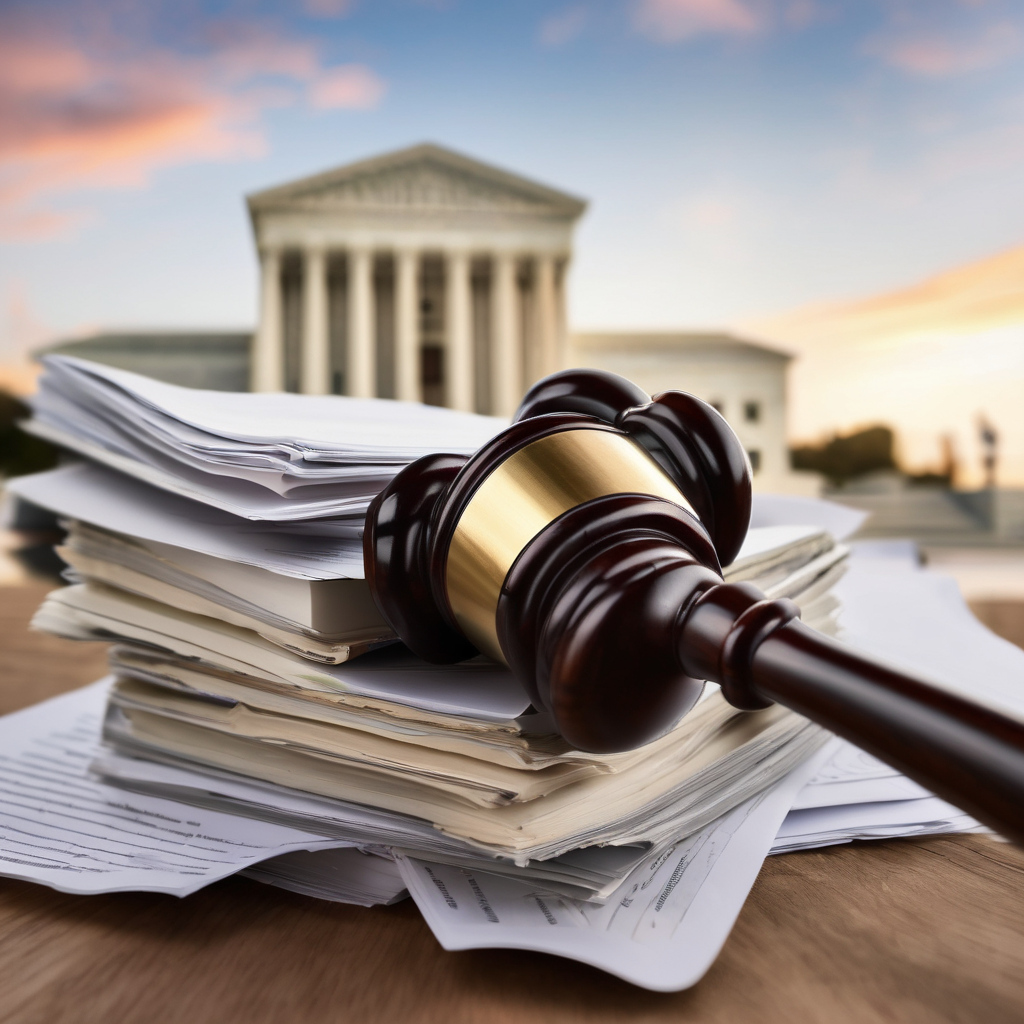The Supreme Court made a significant decision on Wednesday, opting to delay its ruling on the Trump administration’s appeal concerning Shira Perlmutter, who serves as the head of the U.S. Copyright Office. This appeal comes as Perlmutter has challenged her termination amid controversies that arose after the release of a report on artificial intelligence, which reportedly did not align with Trump’s views.
In an unsigned order, the court stated it would not entertain the government’s request to pause a ruling from a federal appeals court that temporarily reinstated Perlmutter to her position while similar cases involving other federal officials are resolved. Notably, Justice Clarence Thomas expressed his willingness to grant the government’s request but did not provide further commentary on his rationale.
The Register of Copyrights operates within the Library of Congress, which has faced institutional upheaval, particularly after President Trump dismissed Carla Hayden from her role as Librarian of Congress in May. Following this, Todd Blanche was appointed as the Acting Librarian.
The conflict concerning Perlmutter began shortly after the Copyright Office published a pre-release version of its report on artificial intelligence on May 10, which led to her immediate dismissal via an email from the White House’s Presidential Personnel Office. Perlmutter subsequently filed a lawsuit in federal court to contest her removal. Initially, her request for temporary reinstatement was denied by U.S. District Judge Timothy Kelly. However, the D.C. Circuit Court overruled this decision in a narrow 2-1 vote, requiring the administration to allow Perlmutter to return to her post.
The Trump administration’s argument, presented by U.S. Solicitor General D. John Sauer, revolves around the assertion that because the Register of Copyrights performs executive functions—like enforcing copyright regulations—it falls within the realm of executive power, thus enabling the president’s authority to dismiss her. Conversely, Perlmutter contends that the Library of Congress is not an executive agency but rather part of the legislative branch, casting doubt on the legitimacy of her termination and the appointment of Blanche.
The Supreme Court’s decision to defer any actions regarding Perlmutter’s case will remain in place until after the court addresses two related cases: Trump v. Slaughter and Trump v. Cook. Oral arguments for these cases are scheduled for December 8 and January 21, respectively, meaning a resolution regarding Perlmutter might not come until after these hearings conclude.
This ongoing legal battle highlights the complex intersection of executive power, administrative authority, and institutional governance, showcasing the vital role that courts play in resolving disputes within the federal government. The outcomes of these cases could have broader implications for the structure and function of regulatory bodies within the executive framework.
